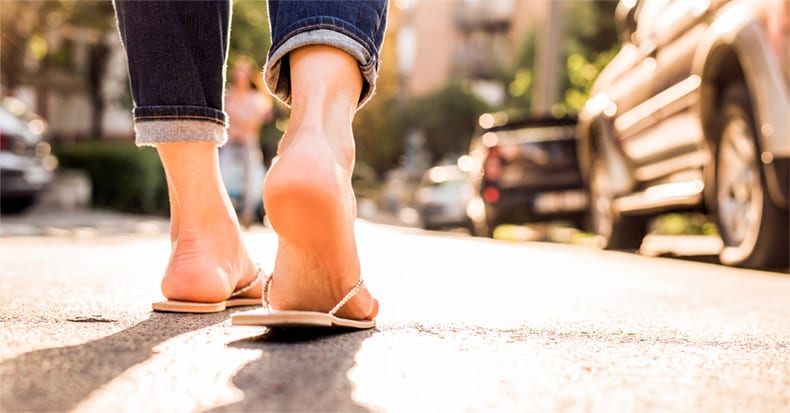The foot and ankle are unique in that their range of motion includes not only the front-to-back, hinge-like motion we associate with walking but also the lateral or side-to-side movement needed to change directions quickly. A problem in the foot can have a “domino effect’ that alters the biomechanics or the ankles, knees, hips, pelvis, low back, and even the neck—potentially increasing the risk of injury in each these areas.
Back in 1995, Rothbart and colleagues reported that hyperpronation—or excessive rolling inwards of the foot and ankle—is a leading cause of pelvic repositioning and mechanical LBP. Just watch people from behind as they walk in a mall, airport, or grocery store and you’ll notice almost everyone’s ankle rolls inwards as they step downward. To maintain proper foot posture, the use of foot orthotics is the most practical approach— coupled with wearing well-fitted, comfortable shoes, of course.
In a 2017 study, researchers recruited 225 adults with chronic LBP (more than three months) and randomly assigned them into one of three treatment groups: shoe orthotic (SO)-only, a “plus” group (SO + chiropractic manipulation/CM), or a waitlist group. The research team measured each participant’s pain and function/disability initially, after six weeks (the length of the treatment period), and then three, six, and twelve months later.
After six weeks, only members in the intervention groups reported any improvement in function. When comparing the waitlist and SO-only groups, the SO-only group demonstrated significantly greater improvements in both pain and function. The researchers also noted that members of the SO+CM group experienced even greater levels of clinically significant functional improvement.
This large-scale study supports the importance of examining the whole patient to identify and treat all factors that may contribute to a patient’s chief complaint.
